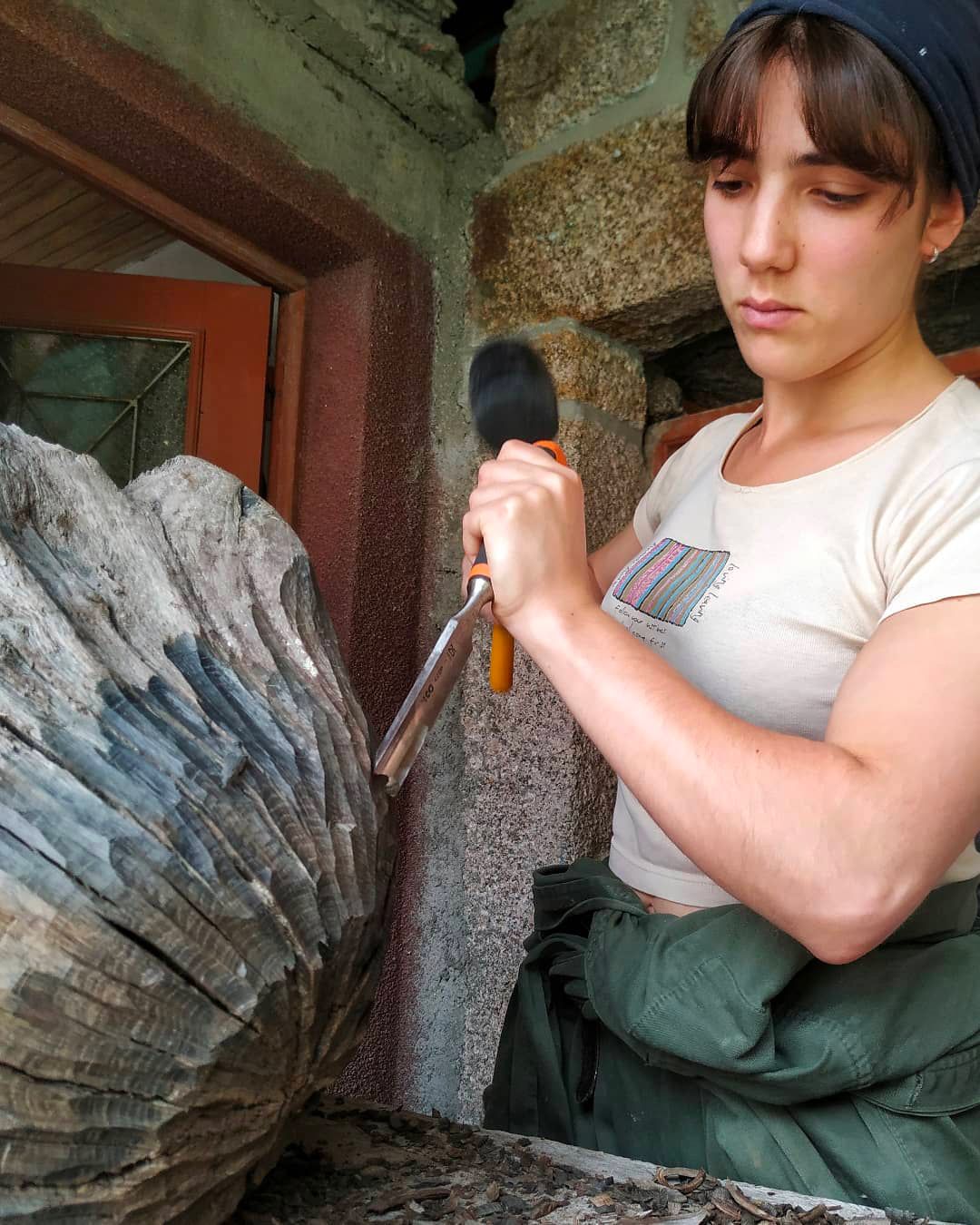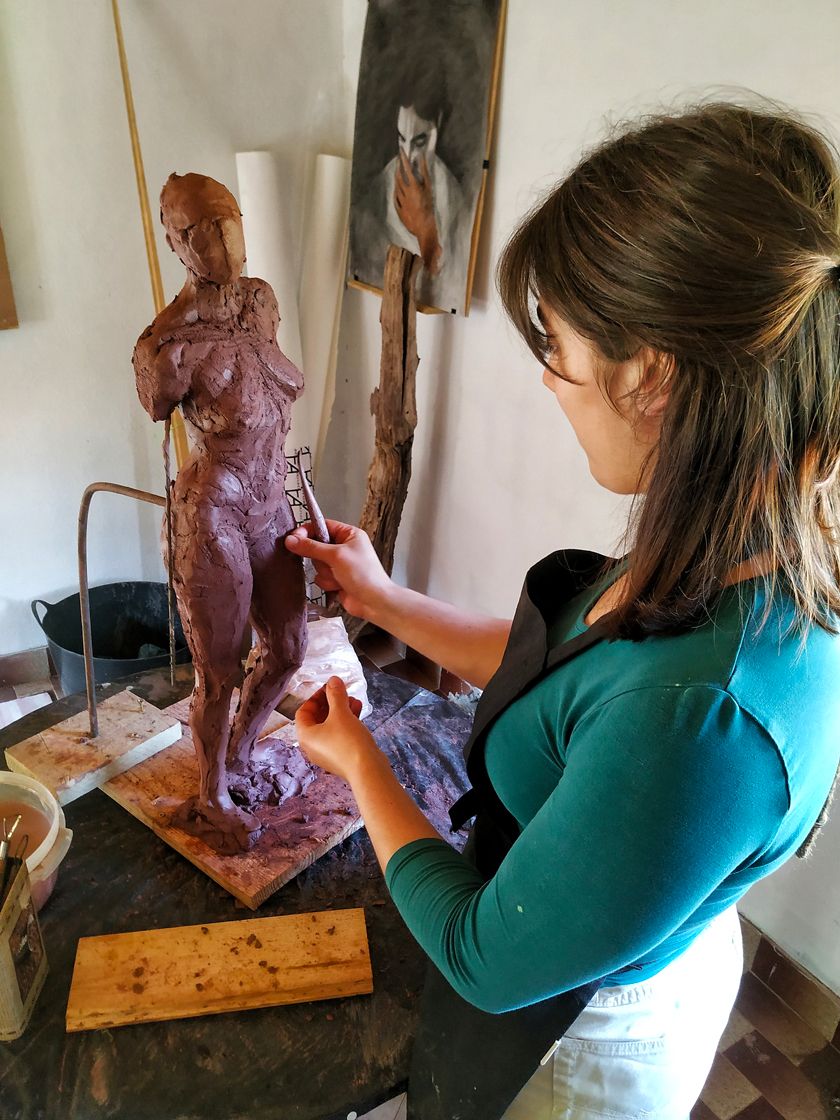Though International Women's Day 2022 is behind us, highlighting exceptional women remains a top priority. For this reason, Arts Help is continuing the momentum of International Women's Day with a series of interviews showcasing a selection of women from our creative community who have spoken to us about their experiences in their respective fields.
The founder of Insights of an Eco-Artist, Joana Alarcão wears many hats, being all at once an artist, a writer, a podcast host and more. Through all her endeavors, however, the common thread remains her firm commitment to climate justice and investigating where environmentalism meets social justice.
In the following interview, Alarcão offers her insights on gender equality and shares the steps that we can take to achieve gender parity.
Tell us a little bit about yourself and how you got started in your field.
I am an eco-artist and art journalist whose work focuses on bringing awareness to global environmental and humanitarian crises. Since the second year of my bachelor's in Sculpture at the University of Fine Arts Lisbon, I have been creating sculptures, drawings and installations that speak to the impact of humans on the planet. Although my methodology has improved and my sculptures are more figurative, I still have the same goal.
This same goal and my fondness for the written word led me to found an online magazine called Insights of an Eco Artist after my Master's in Art and Environment at the Burren College of Art in Ireland. The magazine is a platform where I and my team of artists and writers delve into democratic discourse about current environmental and social events connected with art practices, basically to raise awareness for art, artists and cultural movements that are working for a more sustainable world.
The passion to develop written pieces connected to my artistic practice drove me to pursue further a career as an art journalist. Even though correlating being an artist with being a journalist sometimes can be challenging, I believe these two aspects of myself are interconnected and actually correlate with each other, helping me become a better artist, writer and individual.
How have things changed for women in your field since you began your career?
I was born in an era where spaces for women in social spheres were starting to change, and since I left college, women are having more of a strong position in art and journalism, with initiatives, exhibitions and spotlights only dedicated to women. When women have the ability to freely pursue their goals and behave according to their identity and not gender, then the number of women in any field increases.
Although I speak from a privileged position as I live in a democratic country with access to education and opportunities even if not in my own homeland, this is not the reality for many women and girls across the world. This is something we must not disregard when thinking about the position of women in society. Have things changed? Yes, absolutely. But gender equality means equality for a large number of women and that is still not a reality due to many economic and political factors.


How does being a woman help to contribute to your field?
Honestly, I have to approach this question through two different lenses. First, I believe that being a woman doing the job I do is a privilege, and it shouldn't be taken for granted. The way I was raised allowed me to freely develop my character as an individual, and the opportunities granted by my family are also a heavy factor here. Because of that, much of the contributions I make to my fields both art and media are based on my character.
Although I have character traits that are mainly associated with women — agreeableness and kindness — that help me better connect with the people I work with, including the artists and entrepreneurs who interview to investigate the subjects of gender and economic inequality, many would also say I display character traits better associated with my male colleagues — physical strength and assertiveness — which are crucial to my sculptural work and all the factors that creating and delving into new things require. Therefore, I believe it to be difficult to associate my contributions based on my gender alone.
I would say being a woman in a democratic country is not as different from being a man — not in the types of contributions I make to my fields. If I was not in a democratic country, or if I didn't have my personality traits, my answer may would've been entirely different.
Therefore, this question presents a line of thought that I believe to have two avenues of deliberation, one is that accomplishments and contributions should be based on merit and secondly, there are too many factors adjacent to equality of opportunities for me to be able to have a more concrete answer.
What actions can men take to champion women in the field?
This can be a tricky question and I can only answer it from a more personal view. I have found that feeling understood is a must to create truthful interactions that will further a career. The ability of men to treat women with respect and not patronize our accomplishments is an action that increases equality in conversation, workplaces and classrooms.
Therefore, I truly support that if men want to equally champion women in any field, the ability to look beyond gender is the best action to be taken. If a woman is as capable as her fellow male colleague, she should have the job despite being a woman and she has the right not to feel as if she is only fulfilling the status quo of a company. The road to equality of power (opportunities) is cooperation and understanding.
What does helping other women in your field look like?
Broadly speaking, to be able to help women in my field I believe in equally supporting both genders — be it motivating friends, colleagues or trying to raise awareness for both genders' accomplishments. There is a need to fight for women and men to have both a say in what type of positions they are offered, what healthcare and educational legislation are developed and what spaces in newsrooms and galleries are available.
Specifically, in my sculptures and written pieces I investigate humanitarian crises and global female inequality, highlighting the struggles that women and female artists face in economic and politically unstable countries. Not turning a blind eye to injustices is also a factor that can help women reach better opportunities.
What advice do you live by that has impacted your career?
As an industrious person, I have the need to be constantly working, and the advice that helped me be what I am today is to have the courage to start something new. If you have an idea, a project, or a goal you want to reach, go for it. If you don't have the professional expertise, seek online courses; if you don't have the budget, start small or find investors. But start. Strength to stand tall even when you feel like an imposter is a must to accomplish anything.
What steps can we take moving forward to achieve gender equality, both in your field and beyond?
Firstly, there is a need to be both protective of men as it is of women. A man also brings something to the table and women can prosper from fruitful partnerships.
Secondly, gender equality is based on multiple factors, such as economic growth, gender biases, access to education and political security. If we are able to raise more people out of poverty and find ways to give more educational access to women in regions plagued by political instability and humanitarian crises, we are already creating a more prosperous global society. After that, with access to education women will be able to equally fill the working force and better undergo the pressures of prejudice.
To read more about Arts Help's International Women's Day initiative in partnership with The Global Goals, click here.
